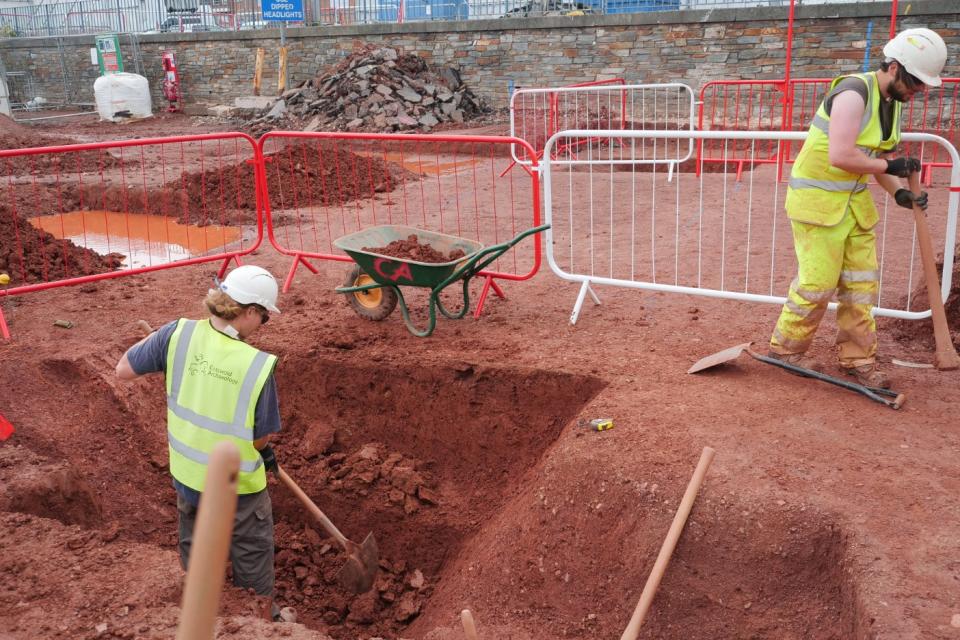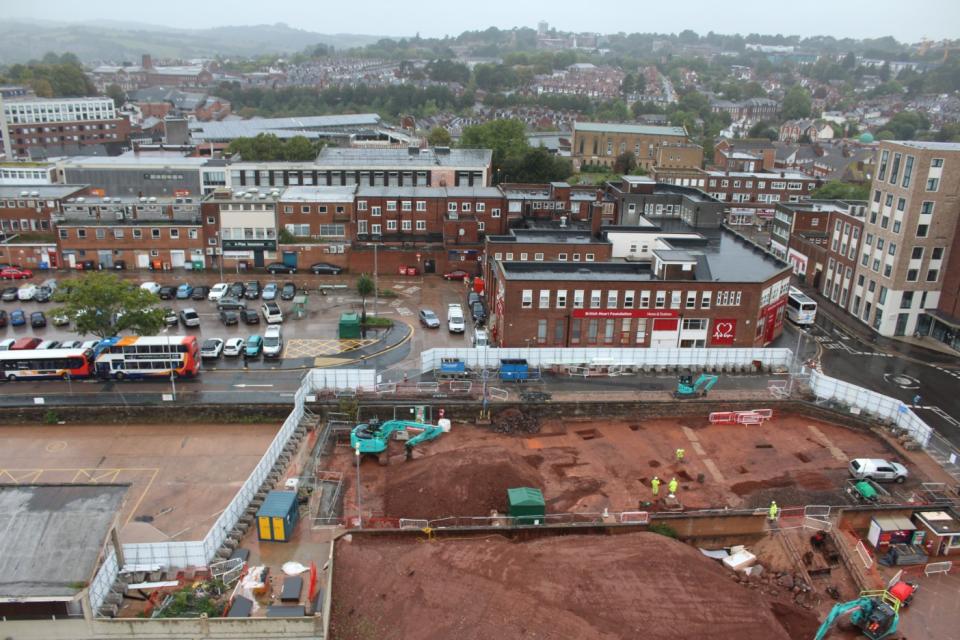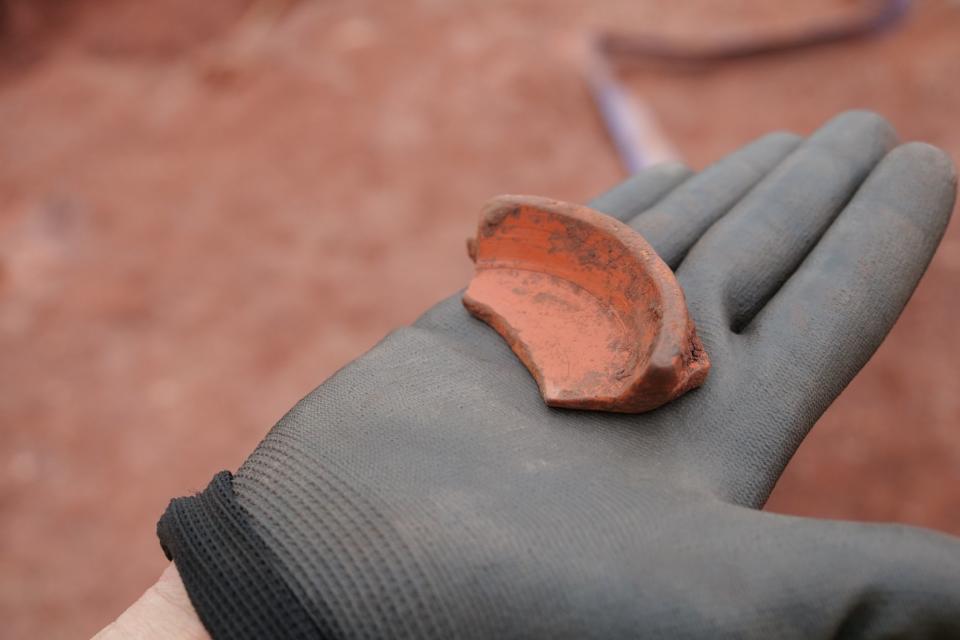Roman fort remains 'unexpectedly' discovered beneath Exeter bus station

Archaeologists have "unexpectedly" discovered the remains of a Roman fort under Exeter bus station.
Experts hailed the find, which was found during redevelopment of the station, as "very important".
A Roman-era ditch was first to be uncovered - before further excavations revealed another two ditches, that run parallel to each other.

The Exeter office of Cotswold Archaeology, which made the find, believes the ditches belong to a new and previously unknown Roman military site that is thought to have been a fort occupied by a military unit or a defended compound.
Artefacts such as coins and local pottery made in the area - as well as red Samian tableware imported from France - were also discovered during the dig.
The find was made alongside Kier Construction, ahead of work beginning on a new bus station and leisure complex in the heart of the city.
Read more from Yahoo News UK:
21 suspected illegal immigrants found aboard cargo ship in Norfolk
Tube drivers set to strike because of concerns over noise levels
Backlash after Boris Johnson connects murdered MP Jo Cox to Brexit
A Roman fortress was established in Exeter in around AD55, with a civilian town later established there as the regional capital of south west England.
The fortress and its bathhouse was discovered under the Cathedral Green in the 1970s, with more recent work uncovering other finds in the city.
Andrew Pye, lead archaeology officer at Exeter City Council, said: “This is a very important, and completely unexpected, discovery, in an area that has been heavily changed by previous post war redevelopment.

“As the city continues to grow and renew, it is a good example of how the planning system and developers work together to make sure that remains that are inevitably affected by new development are properly excavated and recorded for the benefit of this and future generations.
“This discovery of yet another new Roman ‘fort’ within the city does demonstrate, along with that of the fortress and baths back in the 1970s and of several other new major military sites in the last decade, just how pivotal a role the Exeter area played in the first decades of the Roman conquest and subjugation of Britain, and how crucial development led archaeology has been in revealing this.”

Exeter council said that ongoing archaeological work at the site - situated between Bampfylde Street and Cheeke Street - would not affect the timetable of the new bus station’s construction work.
Derek Evans, of the Cotswold Archaeology’s Exeter office, said: “The unexpected nature of this discovery and the significance of uncovering previously -undocumented Roman military features in this area of the city, have made this a challenging and interesting project.

“We look forward to undertaking further analysis of the finds and other material recovered during our works and refining the story of the site’s history.”
The current bus station was constructed in the early 1960s.

 Yahoo News
Yahoo News 
